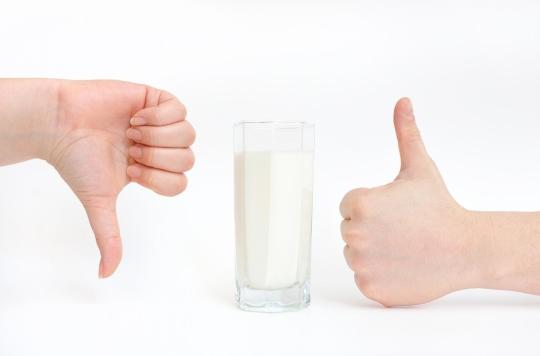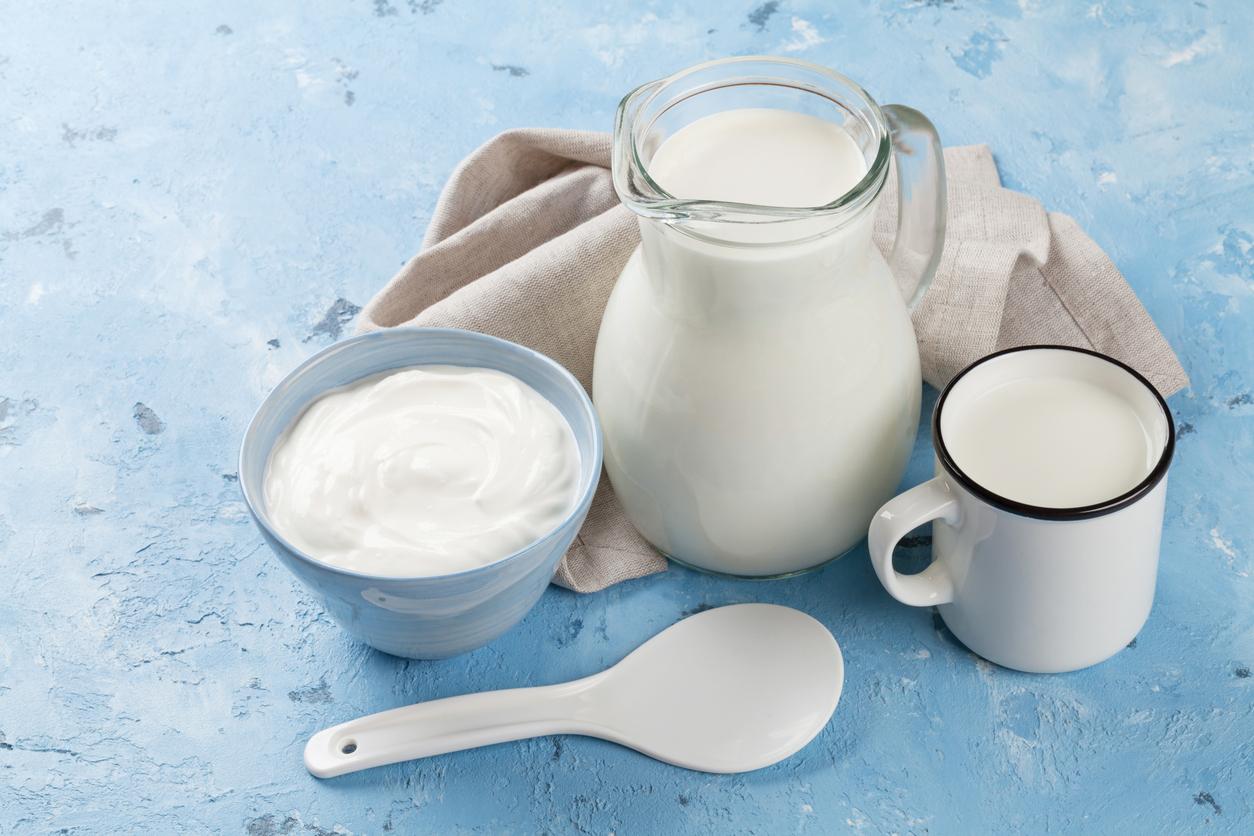Recommended for a long time, milk has been increasingly criticized in recent years. Intolerance, cancer, acne… Is this concern about its consequences on health justified?

- In the space of 15 years, milk consumption has fallen by nearly 25%, according to the trade union Syndilait. A French person drinks an average of 45.5 liters of milk per year.
- It is recommended to consume two dairy products a day. Below, it is necessary to compensate the nutritional contributions brought by the dairy products with those of other foods which contain them.
- Above, some studies point to the health risks of too much consumption.
Are dairy products still our friends for life? Over the past ten years, milk has become very controversial. Some say it’s a very nutritious drink essential for good health, others say it’s a poison that increases the risk of getting cancer. So, who is right ?
Its recognized benefits
Milk is, indeed, a very nutritious beverage. Rich in fats, minerals and lactose (milk sugar), it is also source of calcium and phosphorus. 100 ml cover more than 10% of the daily recommended nutritional intake for an adult in calcium and phosphorus, essential for bone mineralization and teeth, as well as tissue regeneration. It also contains vitamins B12, B2, B3 or PP, B5, A, C and D. Finally, it offers a good supply of protein, the value of which is comparable to that of meat. All this makes it a particularly complete food that meets many of the body’s needs and helps the child to grow well.
Many studies have been able to boast some of its benefits. For example, milk fat would be associated with a reduced risk of diabetes or beneficial effects on the heart. And a daily dose of 700 milligrams of calcium would help lower the risk of colon cancer (large intestine). As for bones, if we take the studies as a whole, the effect of milk consumption on bone health is neutral. but fermented milk products can prevent fracture risk. This is why the Public Health France website Mangerbouger.fr recommends consuming 2 dairy products per day (one dairy product = a dose of 100 to 150 ml of milk) for adults.
His dark side
On the other hand, numerous studies have also alerted to potential risks associated with the regular consumption of milk. Especially with regard to cancer. For example, men who often consume dairy products (milk, yogurt or cheese) are more likely to develop a Prostate cancer compared to those who do not eat it. This is why it is better to limit your milk consumption on a daily basis. Especially since it is a very fatty food whose additional calories can contribute to overweight if you drink a lot of milk in addition to meals.
Skimmed milk is lower in fat, but it would increase the risk of developing acne. And it wouldn’t necessarily reduce weight gain: Researchers at the University of Virginia found that children who drank skim or 1% fat milk gained more weight than those who drank whole or fat milk. 2% fat. In addition, cow’s milk is one of the foods most frequently implicated in food allergies in young children: this is why it is not recommended for children under one year of age. Above all, many people are lactose intolerant: 2% to 15% of Northern Europeans and 65% of the world population. In this case, the consumption of milk should be avoided so as not to be exposed to various digestive symptoms: excess gas, gurgling, feeling of bloating, cramps and abdominal pain, diarrhea.
Milk is not all white or all black
In summary, it is difficult to find one’s way among all the studies on the subject, between those commissioned by milk manufacturers who generally tend to value its consumption and those which need to be further investigated to support their results. But what is certain is that it is not mandatory to drink milk to be in good health when its nutrient intake is compensated by other foods (sardines are very rich in calcium and phosphorus for example , and calcium is found in several green vegetables such as spinach or even in tofu).
Especially since, apart from health, milk consumption has a higher carbon footprint than its alternatives (1.63 kg of CO2 equivalent in the atmosphere per liter of whole milk produced) and the dairy industry causes animal suffering. Nevertheless, for those who are not lactose intolerant, moderate consumption presents only very low health risks, risks which are not entirely consensus in the scientific community.

















